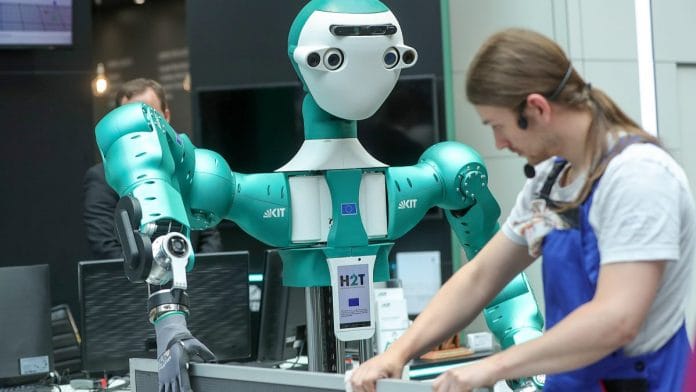Have you ever commiserated with your colleagues that your boss acts like an automaton?
This soon might be more than just a figure of speech – and some employees don’t necessarily think that would be a bad thing.
By 2030, up to 800 million workers around the world could be replaced by machines. The fear of rampaging robots isn’t just restricted to jobs. Leaders in emerging technology, such as Elon Musk, have suggested artificial intelligence (AI) is “a fundamental risk to the existence of civilization.”
But a new survey shows some workers have much friendlier views toward AI. Oracle and Future Workplace found 82% of workers believe robot managers are better at certain tasks – such as maintaining work schedules and providing unbiased information – than their human counterparts.
And almost two-thirds (64%) of workers worldwide say they would trust a robot more than their human manager. In China and India, that figure rises to almost 90%.
The use of robotics in Asia is growing rapidly. Sales of industrial robots in India jumped by 39% in a year, while China is aiming to become one of the world’s most automated nations by 2020.
Also read: Robot ‘Baxter’ could solve shortage of qualified nurses across the world
Artificial intelligence is boosting productivity
The implementation of AI technology, including robots, is expected to add as much as $15.7 trillion to the global economy by 2030. Automating routine tasks and administration will free employees up to focus on more complex work, while product development will become more agile as machines learn rapidly about what customers want.
The research recognizes that robots can bring complementary skills to the workplace. More than half of those surveyed by Oracle/Future Workplace say they’re excited about having robot co-workers. Millennials are particularly enthusiastic.
There’s room for humans and machines
Our workplaces are changing – and not necessarily for the worse. A World Economic Forum report on the future of work suggests that while 75 million jobs may be lost to automation by 2022, another 133 million additional new roles will be created.
Those new roles – as well as stable occupations such as human resources specialists and university lecturers – are likely to play on our creativity and ability to empathize with colleagues.
Respondents to the AI at Work study said human bosses were still better at understanding their feelings, coaching, and creating a supportive and motivating work climate.
“AI is redefining not only the relationship between worker and manager, but also the role of a manager in an AI-driven workplace,” says Dan Schawbel, Research Director at Future Workplace.
“Managers will remain relevant in the future if they focus on being human and using their soft skills, while leaving the technical skills and routine tasks to robots.”
Also read: Workers might welcome robots taking over their jobs
This article was originally published on the website of the World Economic Forum.






